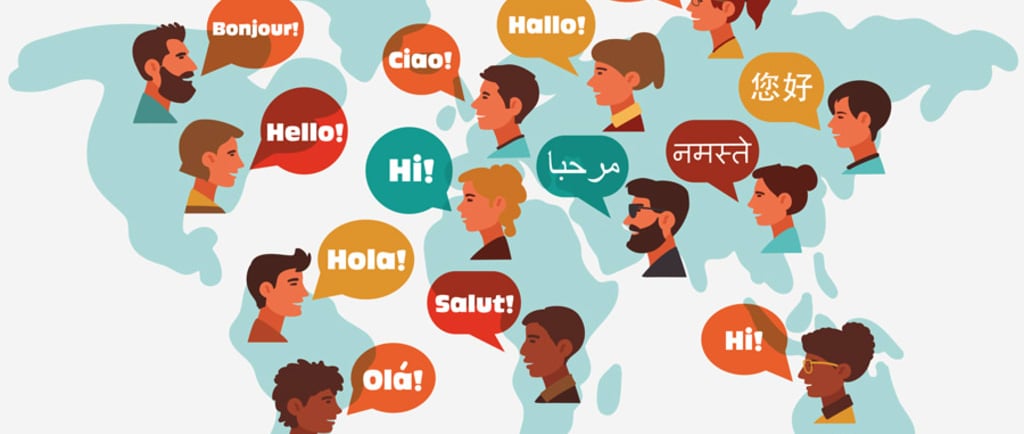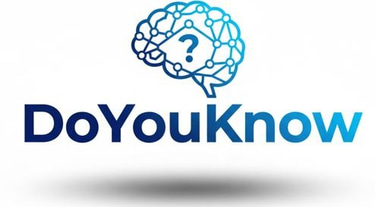Do You Know Why Language Made Humans Different
Language is not just about words; it is the foundation of human civilization. Discover why the ability to communicate made humans unique, how it shaped societies, and why language is considered humanity’s most powerful invention.
KNOWLEDGE & EDUCATION
Do You Know Team
7/21/20254 min read


What makes humans different from all other living beings on Earth? Some may say it is intelligence, others may argue it is our ability to create tools or build civilizations. Yet, one of the most powerful forces that truly set us apart is language. Language gave humans the ability to communicate complex ideas, share knowledge across generations, and build cultures. Unlike animal sounds or signals, human language allows us to talk about the past, imagine the future, and create stories that unite millions of people. Without language, there would be no history, no science, no religion, and no nations.
In this article, we will explore why language made humans different and how it shaped the destiny of our species.
1. The Roots of Human Communication
Before the development of full language, early humans likely used gestures, facial expressions, and simple sounds to communicate.
Studies show that even chimpanzees and bonobos, our closest relatives, can use signs and calls to convey messages.
However, only humans developed a structured system of grammar and symbols that could be expanded endlessly.
This leap in communication was one of the biggest turning points in human evolution.
2. Language and the Brain
Human brains are uniquely structured for language.
Areas like Broca’s area and Wernicke’s area are responsible for speech and comprehension.
This specialization is absent in other animals, even intelligent ones like dolphins and elephants.
Our brains evolved to create, understand, and process thousands of words, making language an inseparable part of human identity.
3. The Birth of Spoken Language
Linguists believe spoken language began around 50,000–100,000 years ago.
It may have started with simple sounds to warn about danger or call for help.
Over time, humans added grammar, meaning, and storytelling.
The ability to tell stories allowed humans to pass on knowledge, traditions, and survival strategies across generations.
4. Why Animals Have Communication but Not Language
Many animals communicate:
Bees perform dances to show the direction of food.
Birds sing to attract mates or mark territory.
Dolphins use whistles to recognize each other.
But these systems are limited. Human language is unique because it has infinite combinations of words that allow us to express anything—from facts to emotions to abstract ideas.
5. Language as a Tool for Cooperation
One of the most powerful effects of language was its ability to help humans cooperate in large groups.
Early humans could coordinate hunting strategies, plan migrations, and share food resources.
Myths and stories united people under common beliefs, making teamwork possible on a large scale.
This cooperation helped humans survive in environments where stronger animals might have otherwise dominated.
6. Language and the Birth of Culture
Language did not just help with survival—it shaped entire cultures.
Through language, humans created songs, poetry, and rituals.
It allowed for the rise of religions, traditions, and moral systems.
Storytelling became a way to pass values and lessons to future generations.
Without language, culture as we know it would not exist.
7. The Written Word – Expanding Human Memory
Around 5,000 years ago, humans developed writing systems.
Sumerians created cuneiform, Egyptians created hieroglyphs, and Chinese developed early characters.
Writing allowed humans to record laws, trade, and history.
This was revolutionary—because it meant knowledge was no longer trapped in memory but could be preserved for thousands of years.
8. Language and Identity
Language shapes how we think and who we are.
Different languages influence how people view time, space, and relationships.
For example, some languages don’t have words for left and right but instead use cardinal directions like north and south.
Language is not just a tool; it is a lens through which we see the world.
9. The Role of Language in Power and Civilization
Throughout history, empires spread their power through language.
Latin shaped Europe during the Roman Empire.
Sanskrit influenced much of South Asia.
English today connects people worldwide as a global language.
Language has always been a weapon of influence, uniting people under common rules and knowledge.
10. Why Language Made Humans Different
The reason language made humans different can be summed up in three key points:
It allows abstract thought – Humans can talk about things that don’t exist yet, like dreams or future inventions.
It preserves knowledge – Through spoken and written words, humans pass on wisdom beyond their own lifetime.
It builds societies – Language unites people with common stories, values, and goals, creating civilizations.
No other species has developed a system as powerful as human language.
FAQs
Q1: When did humans first develop language?
A: Most scientists believe spoken language began between 50,000–100,000 years ago.
Q2: Why is language important for humans?
A: Language allows communication, cooperation, and the preservation of culture and knowledge.
Q3: Do animals have language?
A: Animals have communication systems but lack the complexity, grammar, and creativity of human language.
Q4: What was the first written language?
A: The earliest known writing system is cuneiform, developed by the Sumerians around 3200 BCE.
Q5: How many languages exist today?
A: There are about 7,000 languages spoken in the world today, though many are endangered.
Conclusion
Language is more than just words—it is the foundation of human progress. From the first spoken sounds to the creation of alphabets and books, language has allowed humans to dream, plan, and build civilizations. It gave us the power to share ideas, unite people, and pass knowledge forward. Without language, there would be no science, no history, and no future planning. It is the single factor that truly made humans different from every other species on Earth. So, the next time you speak or write, remember: language is humanity’s greatest invention—and our greatest gift.
#DoYouKnow #HumanLanguage #PowerOfWords #HistoryOfLanguage #HumanEvolution #Communication #Civilization
Knowledge
Empowering minds with reliable educational content daily.
Newsletter Signup
© 2025 DoYouKnow. All rights reserved.
Stay Ahead of the Trends – Join Our Newsletter
